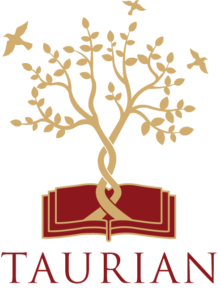Organic vs Inorganic Chemistry
May 7, 2020 2025-04-08 12:44Organic vs Inorganic Chemistry

Organic vs Inorganic Chemistry
Chemistry is all about the relationship between matter and energy of both the elements and their compounds. For most of the purposes, a chemist focusses on around 90 elements. For better understanding and ease of use, Chemistry has been divided into various genres such as Organic Chemistry, Inorganic Chemistry, Biochemistry, Quantum Chemistry and Physical Chemistry and so on.
Broadly, however, the subject has been divided into two categories – Inorganic Chemistry and Organic Chemistry. Before drawing the conclusion as to which stream is difficult and which is easier, let us first understand what Organic and Inorganic Chemistry is.
Inorganic Chemistry
When you are introduced to this subject for the first time, Inorganic Chemistry is what you learn. Studies of metals, non-metals, bases, acids, and salts. Throughout the study, you would learn about Sodium Chloride, Potassium Nitrate, Phosphoric Acid, Nickel Sulfate and so on. As the subject proceeds, you would get familiar with topics like half-reactions, average reactions, spontaneous and instantaneous reactions and so on. Chemical analysis, titration andd other topics would also be part of the Inorganic Chemistry sooner or later.
Applications of Inorganic Chemistry
There are various applications of Inorganic compounds in medicine and well as our homes.
Application in Medicine
The inorganic compound Magnesium Hydroxide, Aluminum Hydroxide is used as antacids for acidity and heartburns. Similarly, Sodium Fluoride uses its application in toothpaste to prevent various dental diseases. In the hospitals, to enhance the haemoglobin levels for the anaemic patients, Ferrous Sulphate is used. Of all the things, the most common one is Oxygen which is used for respiration. Inorganic compound Sodium Chloride and Potassium Chloride is used as oral rehydration salt for relieving weakness during the de-hydration, vomiting or diarrhoea.
Application at home
The most common Inorganic compound that you know about is table salt. Then, there are various other compounds such as Baking soda, Bleaching powder, Washing soda and so on that are used in a household on a daily basis. Inorganic compounds also include the minerals used in various items such as Bentonite, Talc and Steatite and so on.
Organic Chemistry
You can say that Organic Chemistry is the advanced stage of Inorganic Chemistry. Simply put, the study of the Carbon constitutes Organic Chemistry. However, both the streams of this subject exhibit huge difference related to the subject matter. Visit an Organic laboratory and you would come across long tables with metal latticework with the suspended glassware and so on. There would be color-coded valves that offer, water, air gas and so on.
Organic Chemistry is much broader when compared to the Inorganic chemistry constituting study areas such as Biochemistry which is best defined as the study of chemical processes within the biological organisms.
Applications of the Organic Chemistry
There is many application of Organic Chemistry, wider than the Inorganic Chemistry. It is a complex study and therefore offered as a different subject within Chemistry. Organic Chemistry talks about solvents, graphite, carbons and so on. It also has a wide range of applications and it is fascinating to see that so many substances such as milk, sugar, and the bread that we use in our daily life are made of the organic material. Apart from edible, there are other things such as belts, shoes, tires, computers, machines that also come under this category. There are various uses of Organic Chemistry and let us walk through each application one by one.
Application in Medicine
One place where you would find organic compounds in abundance is the medical store. Not all, but there is a wide variety of drugs that are made from the organic compounds. Organic compounds form a part of antibiotics, painkillers, anti-depressant and anesthetics and so on. The organic compounds make the water of the medicine soluble as well as easily movable within the body tissues. With the study of Organic Chemistry, the experts look to improve the efficiency of drugs.
Pathophysiology of the disease
Most of the diseases in human beings have a slow process and different stages. With the help of the organic area of Chemistry, the experts diagnose the increased or decreased levels of the compounds with the normal ones. Take, for example, a patient who is suffering from some sort of infection, some sort of biochemical components in the body are damaged, Similarly, in Malaria the parasites hit the hemoglobin content of the blood and the levels deplete quickly. In a way or another, there is a change in the organic components and successful diagnosis helps in identifying the stage and severity of the disease.
By,
Sr. Secondary School



